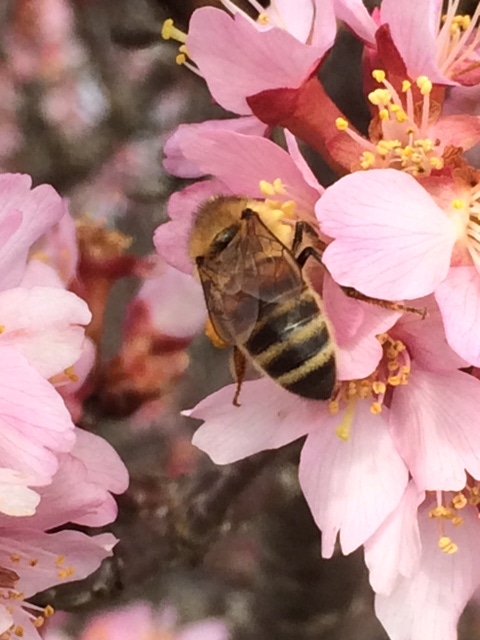May 25, 2017

Good news for bees—and those who keep them.
The number of honey bee colonies lost last year is down from the previous year and shows an improvement over the ten-year average, according to a survey just released by the Bee Informed Partnership (http://beeinformed.org), in collaboration with the Apiary Inspectors of America (AIA).
This was the 11th national annual survey of honey bee colony losses.
Colony loss estimate for the winter of 2016-2017 was 21.1 percent of the colonies managed in the United States, an improvement of 5.8 percentage points over the 2015-2016 winter. The loss is also below the ten-year average total winter loss rate of 28.4 percent.
Winter loss is evaluated on losses from October through March.
Summer loss is also lower, according to the latest survey. The 2016 summer loss rate was 18.1 percent. That number, combined with the winter loss figure, shows a total loss for the year of 33.2 percent, April through March, and represents the second lowest rate of colony loss recorded over the past seven years.
The survey recorded responses from 4,963 beekeepers, representing 363,987 colonies, some 13 percent of the country’s estimated 2.78 million managed honey producing bee colonies.
MORE WORK TO DO
The survey results are hopeful signs for bee colony watch groups, but those organizations point out that continued vigilance and cooperation among all stakeholders will be necessary to reduce losses even more.
“Beekeepers, farmers, businesses, and NGOs have made tremendous progress supporting honey bee health. These results show movement in the right direction, but more collaboration and broad-based strategies are needed to further reduce overwintering losses,” said Julie Shapiro, the facilitator of the Honey Bee Health Coalition and a senior policy director at the Keystone Policy Center.
“The Honey Bee Health Coalition is committed to continuing to bring together diverse organizations to find action-driven solutions to improve honey bee forage and nutrition, support sound hive management practices, reduce incidental pesticide exposure, and enhance collaboration and communication,” she added.
More work needs to be done, says Danielle Downey, executive director of Project Apis m.
“These continued and sustained heavy losses — year after year — show the urgency for working to address the variety of factors and drivers of honey bee health,” said Downey. “Honey bees are integral to modern agriculture, and there is no available replacement for what commercial pollinators do. We look forward to continuing to work as a Coalition to reverse this ongoing trend and ensure we have healthy bees and a sustainable food supply for generations to come.”
The coalition emphasizes the vital role honey bees play in agriculture. “Honey bees support approximately one in three bites of the food we eat every day,” reads a coalition statement. “The Coalition has worked since 2014 to collaboratively implement solutions that will help to achieve a healthy population of honey bees while also supporting healthy populations of native and managed pollinators in the context of productive agricultural systems and thriving ecosystems.”
The survey results also generated praise from the crop protection industry.
"This is terrific news for everyone who cares about bee health," says Dick Rogers, principal scientist and beekeeper for the Bayer Bee Care Program in North America. "As I reported last month, we are not out of the woods, but there is a reason for optimism, given the industry's commitment to protect these vital pollinators."
He adds that Bayer conducts research into the many factors affecting bee health and supports efforts to improve pollinator nutrition caused by a lack of forage through its Feed a Bee initiative. Bayer is also working closely with many partners to improve bee health, including Project Apis m. through its support of the Healthy Hives 2020 initiative.
You May Also Like




